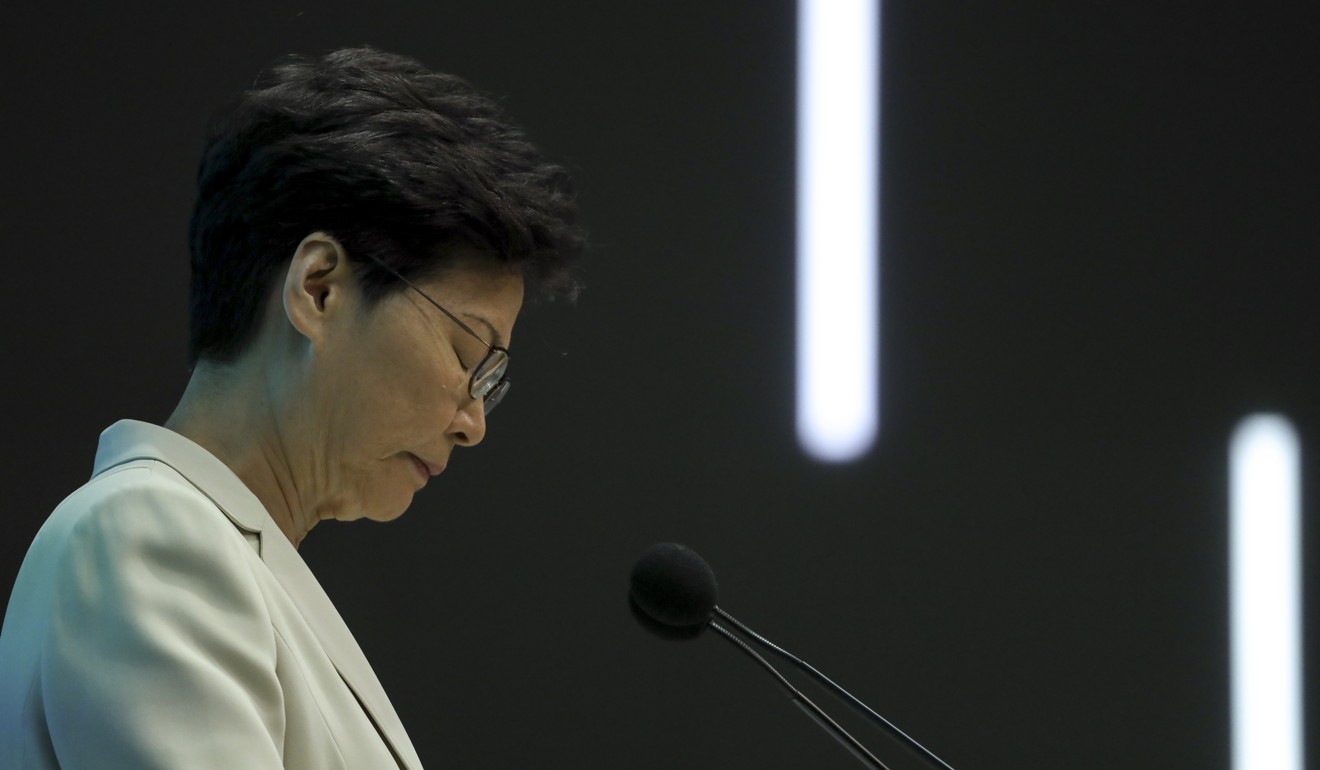
Lessons from Hong Kong’s protests: Carrie Lam is a liability, the leadership selection process doesn’t work, but the right kind of demonstration can
- Hong Kong’s protesters should remember they have succeeded so far because of Carrie Lam’s political ineptitude in seeking to rush the extradition bill through the legislature, and because their resistance hasn’t directly challenged Beijing
The massive protests in Hong Kong in recent weeks have showed the depth of its citizens’ determination to uphold their democratic way of life – something they were supposedly guaranteed when Britain returned sovereignty over the city to China in 1997. Moreover, the protests hold three powerful lessons: for Hong Kong’s chief executive, Carrie Lam Cheng Yuet-ngor, for the demonstrators themselves, and for China’s rulers.
There is no evidence that China gave Lam detailed instructions on enacting the law. Instead, she seems to have taken it upon herself to introduce it. However, Lam exceeded her remit by making the proposed extradition law applicable not only to fugitive mainland Chinese, but also to all ordinary Hong Kong citizens, as well as foreigners temporarily living in or visiting the city.

The chief executive has shown staggering political ineptitude. For starters, she tried to rush the controversial bill through the city’s legislature rather than following normal procedures. Worse, police were ordered to respond with force to the June 9 demonstration, which mobilised 1 million protesters.
When a city turns its police on our children, our trust is shattered
Lam ignored the norms for policing large-scale demonstrations in Hong Kong that had existed since the 1980s. Officers would monitor the demonstrations wearing soft hats and armed with bottled water, and offer help to any demonstrator needing assistance. In the past, this approach invariably secured the protesters’ cooperation.
But the deployment of police in riot gear, and their use of pepper spray, tear gas and rubber bullets, fuelled public anger and led inevitably to outbreaks of violence.
Lam’s initial response was to offer a half-hearted apology and promise to suspend the bill, while insisting that those who had been arrested were rioters. This made citizens angrier still, and led China eventually to withdraw its support for her.
Why did Exco fail to read the public mood on extradition bill?
Xi and his government will keep her in place for the time being, both to avoid handing a scalp to the protesters and because a suitable replacement must be found. But the prospect of Lam serving a full term in office is now remote. The best thing she can do for Hong Kong is to resign before Beijing sacks her. She will find out soon enough that the Communist Party does not forget or forgive.

Second, Hong Kong’s protesters and activists have succeeded so far because they did not directly challenge Xi or the Communist Party, but instead focused on Lam’s failings and demanded withdrawal of the extradition bill. Xi was able to withdraw support for the chief executive in large part because she had failed him. Had Lam merely been doing what she was told, Xi could not have backed down without appearing weak.
Extradition law: one country, two systems and a vicious circle of mistrust
Third, China should recognise that its process for selecting Hong Kong’s chief executive is deeply flawed. Lam is politically inept largely because she lacks the nous that every elected politician acquires through the hurly-burly of electioneering. Chosen by a “selectorate”, Hong Kong’s leader lacks the necessary political skills to perform his or her duties properly – a problem for all Lam’s predecessors going back to 1997.
If China’s leaders cannot endorse a genuine direct election of the chief executive, they should at least revert to their previous plan of holding a popular vote after objectionable candidates have been screened out. Hong Kong’s democrats should accept this as a compromise.
Steve Tsang is director of the SOAS China Institute at the University of London’s School of Oriental and African Studies, and author of A Modern History of Hong Kong. Copyright: Project Syndicate

